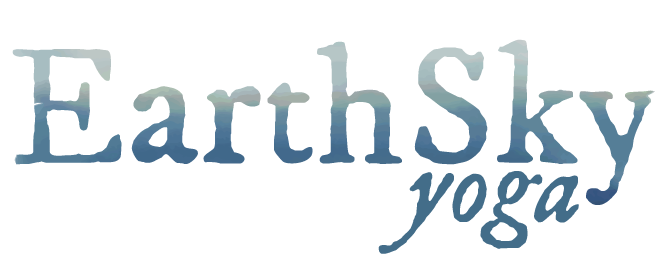
FAQs
Yoga & studio information
Studio Information
-
Yoga cultivates health and wellbeing (physical, emotional, mental and spiritual) through the regular practise of a range of many different techniques, including postures and movement, breath awareness and breathing exercises, relaxation and concentration, self-inquiry and meditation.
The word yoga, from the Sanskrit word yuj means to yoke or bind and is often interpreted as "union" of body, breath and mind.
Around 2000 years ago the then primarily oral transmission of yogic practices were recorded in a text attributed to the Indian sage Patanjali. The Yoga Sutras are a collection of 195 statements that serve as a classical philosophical theory underlying most modern yoga practices today.
In the Yoga Sutras, Patanjali defines yoga as “the cessation of the fluctuations of the mind”. To subdue the fluctuations of the mind, the Yoga Sutra outlines eight aspects of yoga practice, known as the “8 limbs”: yama (observances towards others), niyama (observances we practice toward ourselves) asana (physical postures) pranayama (breathing) pratyahara (drawing the senses of perception inwards) dharana (concentration) dhyana (meditation) samadhi (bliss). Whilst these various aspects are not sequential, they need to be interwoven into an ongoing experiential practice to reach the freedom many yogis aspire to.
As we explore & gradually come to embody these eight limbs, our relationship with ourselves and to our external environment begins to change. Over time our ability to direct the focus of our attention inwards develops and we may experience samadhi (liberation, enlightenment, bliss).
Today most people practicing yoga are engaged in the third limb, asana, which are physical postures designed to purify the body and provide the physical strength and mental stamina required as a foundation for calming the fluctuations of the mind.
-
Yoga is amazing—even if you only practise for one hour a week, you will experience the benefits of the practice. Like anything, what you practise, you get good at. Many students come to class twice a week to keep their motivation up, and also practise on their own at home.
-
Unlike stretching or fitness, yoga is more than just physical postures. Patanjali's eight-fold path illustrates how the physical practice is just one aspect of yoga. Even within the physical practice, yoga is unique because we practice conscious awareness of the natural rhythm of the breath, whilst linking the movements of the body to the movements of the breath. This builds mental focus! Connecting the mind, body, and breath helps us to direct our attention inward. Through this process of inward attention, we learn to recognize our habitual thought patterns without needing to label them, judge them, or even change them. We become more aware of our experiences from moment to moment. The awareness that we cultivate is what makes yoga a practise, rather than a task or a goal to be completed. Your body will most likely become much more flexible, strong, and balanced by doing yoga, and ultimately so will your mind.
-
Yoga is not a religion. Yoga is an embodied practice of scientific inquiry, exploring how breathing, movement and awareness can alter individual perceptions of present moment experience. Due to the cultural origins of yoga, various aspects of Hindu and Buddhist practices may be included within some yoga settings, however yoga may be practiced without the need for any external belief system.
You may also practice yoga alongside any religious beliefs you do have.
-
Many people think that they need to be flexible to begin yoga, but that's a little bit like thinking that you need to be able to pay attention in order to learn to meditate! Yoga is for every body, regardless of your starting point. In our busy lives today, we rarely take time to rest down and BE with ourselves, to allow a few moments to notice sensations in the physical body, acknowledge our state of mind or even take a breath. Yoga is an invitation to do all of those things on a regular basis, offering you an opportunity to re-balance yourself from the inside out.
-
All you really need to begin practicing yoga is your body, your mind and a bit of curiosity. It is also helpful to wear a pair of yoga leggings or shorts and a t-shirt that's not too baggy. No special footgear is required because you will be barefoot. As your practice develops you might want to buy your own yoga mat. At Earth Sky Yoga, we provide mats and other props for you to utilise during class.
-
It is ideal to practise on an empty stomach, (and save your caffeine hit until after class!) In yoga practise we twist from side to side, turn upside down, and bend forward and backward. If you have not fully digested your last meal, it will make itself known to you in ways that are not comfortable. If you are a person with a fast-acting digestive system and are afraid you might get hungry or feel weak during yoga class, experiment with a light snack such as yogurt, a few nuts, ½ a banana or juice about 30 minutes to an hour before class.
Questions about yoga
-
All sessions are by appointment only
-
Flow State Health Studio
12 Green Lane Willunga South has off-street parking available at the top of the driveway, adjacent to the Studio entrance. -
Yes there is a bathroom with a shower and toilet facilities.
-
Book yourself a Yoga Therapy session. For those keen to start yoga and are presently experiencing a serious injury or illness, a one to one Yoga Therapy session is an ideal place to start.
